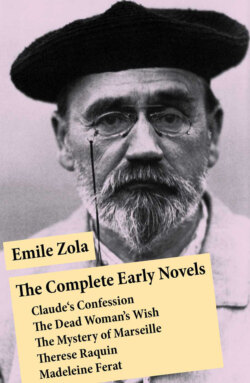Читать книгу The Complete Early Novels - Emile Zola - Страница 34
На сайте Литреса книга снята с продажи.
PROLOGUE
ОглавлениеTable of Contents
TOWARDS the end of 1831, in the Semaphore of Marseilles, the following paragraph might have been read: —
“Last night a great fire destroyed several houses in the little village of St. Henri. The glare of the flames, whose reflection reddened the sea, was seen from this town, and all who happened to be on the Edoumè rocks were enabled to be present at a spectacle at once frightful and sublime.
“Exact details have not yet reached us. Several remarkable instances of bravery are, however, recorded. To-day we are only able to record one heart-stirring incident of this catastrophe.
“The flames spread so rapidly in the lower rooms of one house that it was impossible to give the least help to the inmates. These miserable people were heard uttering piercing cries of terror and distress. Suddenly a woman was seen at one of the windows, holding a young child in her arms. From below, it was noticed that her dress had caught fire. With terror-stricken face and dishevelled hair she stared wildly in front of her, as if smitten with madness.
“The flames ran rapidly along her skirts, and soon she was a blaze of light. Closing her eyes and pressing the child tightly to her breast, she hurled herself frantically through the window. When the people rushed to lift them up they found that the mother’s skull was crushed, but the child still lived. It stretched out its little hands and cried, as if it wished to escape from the fearful pressure of the dead woman’s arms.
“We are informed that this child, having no relations whatever in the world, has just been adopted by quite a young girl, whose name is unknown to us, but who belongs to the nobility of the neighbourhood. Such an action has no need of praise. It speaks for itself.”
